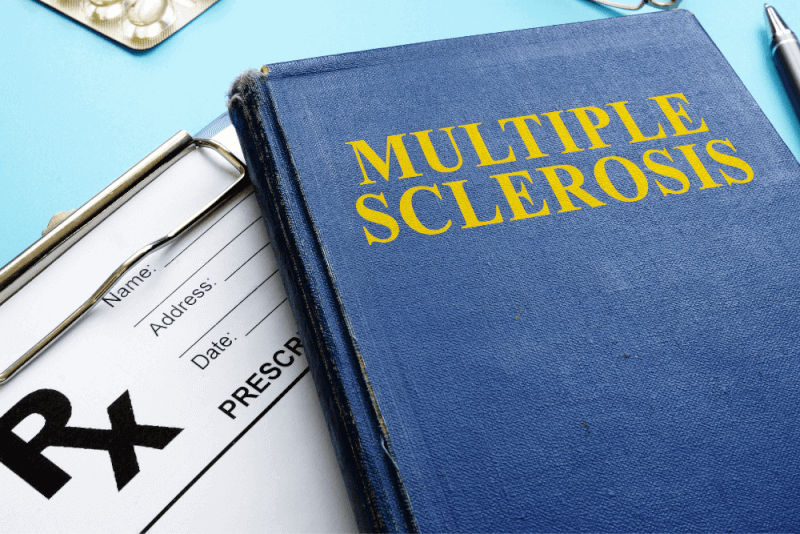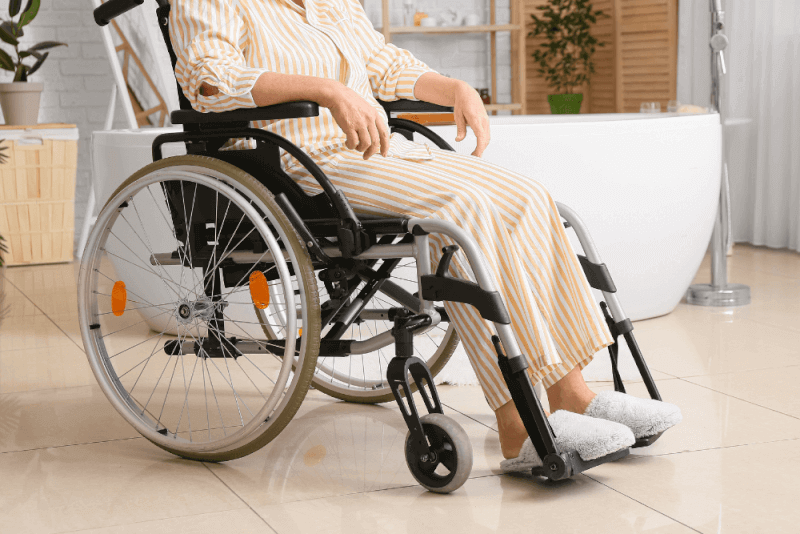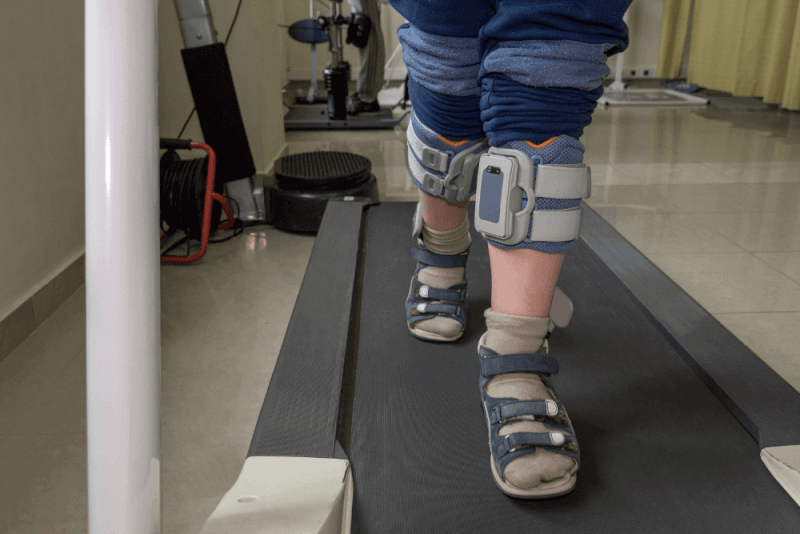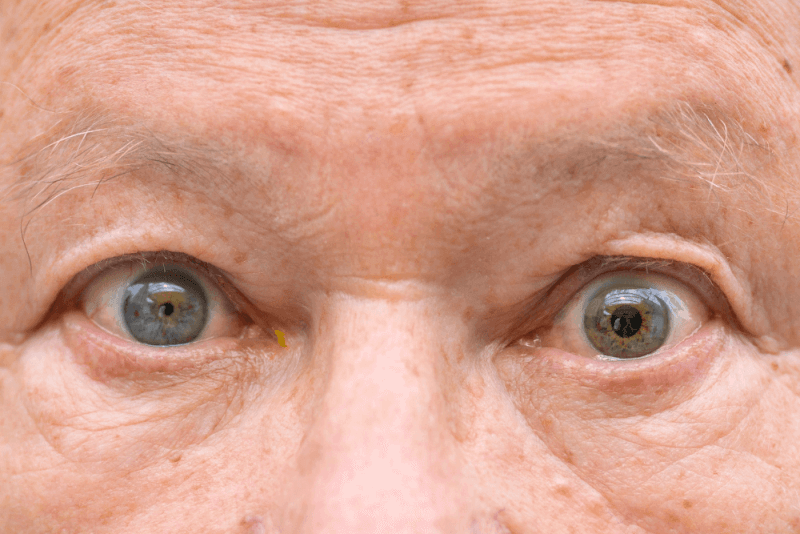What is Dementia?
The term dementia does not describe a specific disease. Instead, it refers to a broad category of mental states that impair thinking, memory, and the ability to perform daily activities, affecting decision-making abilities. Dementia, which typically affects older individuals, is not considered a normal part of aging.
Among dementia diseases, Alzheimer's disease is the most common. It results from abnormal brain activities and affects patients not only mentally but also emotionally, impacting their social relationships.
Between 60% and 80% of dementia cases are Alzheimer's cases. The second most common is vascular dementia, caused by microbleeds in the brain. Additionally, some patients exhibit multiple types of dementia simultaneously, a condition known as mixed dementia.
Dementia is not always irreversible. Conditions such as vitamin deficiencies or thyroid issues can cause symptoms similar to dementia. In such cases, treating the underlying problem can restore patients' former mental health.
Progressive Dementias (Types of Dementia)
Dementia varies within itself. Below are the types included.
Alzheimer's Disease
The cause of a significant portion of Alzheimer's cases remains unknown. In cases where the cause is understood, genetic mutation transmission is involved. It has been determined that mutations in three genes found in parents can cause the disease. In addition, certain genes have been found to affect Alzheimer's disease. The gene that increases the risk of Alzheimer's the most is the apolipoprotein gene, also referred to as APOE, known as E4.
The development of Alzheimer's disease involves the formation of beta-amyloid plaque proteins and the damage caused by tau proteins to healthy neurons in the brain.
Vascular Dementia
The second most common type of dementia among patients is vascular dementia, which arises primarily from damage to the blood vessels that supply the brain. Common symptoms include difficulties with focus and organization, slow thinking, and problem-solving challenges. These symptoms are more noticeable than memory loss, making them key diagnostic signs.
Lewy Body Dementia
Lewy bodies are balloon-shaped protein masses found in the brain. Symptoms caused by these abnormal protein accumulations include physical movement during dreams, visual hallucinations, and issues with attention and concentration.
Frontotemporal Dementia
This type of dementia occurs due to the degeneration of nerve cells in the frontal and temporal lobes of the brain. It affects patients' personalities, language abilities, and behaviors. Symptoms include disruptions in movement, language, judgment, thinking, and personality changes due to the affected areas.
Mixed Dementia
Mixed dementia is seen in autopsies of the brains of individuals over the age of 80. Brains with mixed dementia show features of Lewy bodies, Alzheimer's, and vascular dementia together.
Causes of Dementia
Dementia is primarily caused by damage to cells in the brain. This damage prevents nerve cells from communicating with each other, affecting thought, emotions, and behaviors.
The brain is divided into different areas, each responsible for different functions. Cell damage in a specific area hinders the functions of that area. The presence of different types of dementia corresponds to damage in various brain areas. For example, Alzheimer's disease is caused by excess protein in the brain that prevents cells from communicating. The hippocampus, which is affected first, is the center for memory and learning, hence memory loss is one of the earliest symptoms of Alzheimer's.
While much of the damage in the brain is permanent and tends to worsen over time, some conditions can be treated to restore previous mental health. These conditions include:
- Vitamin deficiencies
- Side effects of medications
- Thyroid problems
- Depression
- Excessive alcohol use
Symptoms of Dementia
The symptoms of dementia vary depending on the stage of the disease. However, the most well-known symptom is the forgetting of newly acquired information. Other common symptoms among dementia patients include, and to be diagnosed with dementia, at least one of these symptoms must be present:
- Memory impairment
- Difficulties in communication and language
- Difficulty focusing
- Attention deficits
- Impairments in reasoning and judgment
- Visual perception disturbances
Risk Factors for Dementia
Dementia is not considered a normal part of aging and thus does not just affect older individuals. Certain factors increase the likelihood of developing dementia, including:
- Age is the most significant known risk factor, as dementia is more common in people over the age of 65.
- Genetic predisposition is another risk factor. Having family members, such as parents or siblings, with dementia increases the risk.
- Race also plays a role in dementia risk factors. African Americans are known to have a higher incidence of dementia compared to Caucasians, and Hispanics have 1.5 times the incidence compared to Caucasians.
- Poor heart health is another risk factor for dementia. Unmanaged cardiovascular diseases can inhibit proper blood flow to the brain, affecting brain tissue nutrition. High blood pressure, cholesterol levels, and smoking are particularly important to monitor.
- Finally, brain damage from traumas also poses a high risk for dementia. Particularly severe or repeated traumas significantly increase the risk of dementia.
Diagnosis Methods for Dementia
There is no single diagnostic method for dementia, which necessitates doctors performing a detailed physical examination and multiple tests to observe physiological symptoms.
Doctors focus on several aspects including medical history, physical examination, laboratory tests, evaluations of cognitive functions, changes in character, and alterations in daily activities to diagnose dementia with a high degree of certainty.
However, diagnosing the specific type of dementia can be more challenging as many forms of dementia affect similar areas of the brain. Therefore, in some cases, determining the type of dementia requires collaborative work between psychiatrists, neurologists, and psychologists.
Procedures Used in Diagnosing Dementia
For the diagnosis of dementia, patients must undergo a detailed examination. Worldwide, detailed procedures are used, including:
- Cognitive and neurological tests are applied to evaluate the physical functioning and thinking capabilities of patients. These tests assess patients' emotional responses, memory, language skills, problem-solving abilities, mathematical skills, and balance.
- Brain scans can detect physical causes like tumors or strokes that may lead to dementia. Commonly used scans include computed tomography (CT), MRI, and PET scans.
- Psychiatric evaluations assess changes in patients' character and mood, as diseases like depression, which can cause dementia, as well as personality disorders that may alter character, need to be identified.
- Genetic predisposition is also considered in dementia patients. Genetic tests are conducted to determine any genetic changes, though the results are not solely used for a definitive diagnosis of dementia.
- Tests on cerebrospinal fluid are also performed for the diagnosis of Alzheimer's or other types of dementia. These tests examine whether there is an increase in proteins in the fluid.
- Finally, blood tests are conducted on patients. However, these tests alone do not provide sufficient evidence for diagnosing dementia.
Stages of Dementia
Dementia is a disease that affects brain functions and is noticeable as the damage to the brain increases. Therefore, the disease starts long before symptoms are observed and consistently progresses in severity. Consequently, it is generally divided into seven stages.
Stage 1
In this stage, no cognitive impairment is observed in patients. Therefore, there is no mental dysfunction in the first stage, and behavioral changes, memory loss, or other alterations are not associated with the onset of dementia.
Stage 2
This stage features very mild cognitive impairment where simple forgetfulness such as misplacing keys is observed. Due to age-related forgetfulness attacks in at least half of individuals over the age of 65, these mild symptoms may be difficult to notice and may not necessarily be considered a part of the dementia stages, despite being part of the scale.
Stage 3
In this stage of mild cognitive impairment, close relatives or caregivers begin to notice symptoms, which become regular over time. These mild cognitive impairments indicate that symptoms will worsen in later stages, making it crucial to recognize them early to mitigate stress. Although these impairments do not significantly affect daily life at this stage, common symptoms include:
- Difficulty driving
- Challenges in completing complex tasks
- Weakened problem-solving abilities
- Disruptions in organization and concentration
- Verbal repetitions
- Memory loss
- Forgetfulness
- Decline in work performance
Stage 4
This stage, marked by moderate cognitive impairment, includes symptoms that become apparent to others. It represents the early stage cognitive impairments of Alzheimer's disease, with worsening of stage 3 symptoms and additional signs such as:
- Denial of symptoms
- Difficulties with routine tasks
- Decrease in mental clarity
- Unresponsiveness
- Despondency
- Irritability
- Social withdrawal
Stage 5
In this stage of moderate cognitive impairment, often identified by physicians as the start of moderate dementia, patients begin to struggle with daily tasks like dressing or bathing independently. Additional symptoms include:
- Significant decline in problem-solving and mental clarity
- Confusion
- Forgetfulness
- Significant memory loss in both personal and current events
Stage 6
Marked by severe cognitive impairments, patients in this stage require help with personal care and daily routines. Characteristic symptoms include:
- Difficulty sleeping
- Incontinence
- Paranoia
- Hallucinations
- Anxiety
- Significant memory loss
- Failure to recognize familiar people
Stage 7
In this stage of very severe cognitive impairment, patients can no longer care for themselves and may lose the ability to walk, talk, and smile. They also begin to experience motor and communication disorders.
Dementia Treatment Methods
Many types of dementia are untreatable and progressive. However, some treatment methods can manage symptoms.
Medication Therapy
Medications are used to temporarily alleviate symptoms caused by dementia.
Cholinesterase Inhibitors
This group of drugs is used to improve symptoms in memory and reasoning by increasing the levels of chemical messengers. Active ingredients in this drug group include donepezil, rivastigmine, and galantamine.
Although primarily used in the treatment of Alzheimer's disease, they can also be prescribed for patients with Lewy body dementia, Parkinson's, and vascular dementia. Side effects may include vomiting, nausea, and diarrhea. Sleep problems, fainting, and a slowdown in heart rate can also occur.
Memantine
This drug group increases the levels of glutamate, another chemical messenger involved in brain functions such as learning and memory. It can be prescribed in combination with cholinesterase inhibitors. The most common side effect of memantine is dizziness.
Other Drug Groups
Other medications can be prescribed to reduce symptoms such as hallucinations, sleep problems, agitation, and parkinsonism.
Therapies
Therapies are also used to manage some symptoms of dementia, particularly recommended for those in the early stages of the condition.
Occupational Therapy
This therapy helps make the daily lives of dementia patients more comfortable and reduces various risks by making their homes safer. It also teaches coping strategies for the disease, preventing common problems such as falls, and preparing patients for the later stages of the disease.
Environmental Modifications
Maintaining a regular, quiet environment is crucial for helping dementia patients concentrate. Potentially dangerous items like knives should be secured, and monitoring systems can be used to enhance patients' safety.
Simpler Task Assignments
Breaking down daily activities into smaller, simpler steps helps dementia patients succeed. Establishing certain routines also helps eliminate confusion.
Lifestyle Changes
As the symptoms caused by dementia worsen over time, adhering to the following recommendations can make caregiving easier.
Enhancing Communication
Communicating with patients should involve maintaining eye contact and using simple sentences without rushing for a response. Use simple instructions one at a time and frequently utilize gestures like pointing to objects.
Encouraging Exercise
Regular exercise is crucial for supporting both the physical and mental health of dementia patients. Regular exercise strengthens balance, strength, and cardiovascular health. Research on dementia patients shows that combining regular exercise with a healthy diet protects the brain from the destructive effects of dementia and also helps alleviate restlessness.
Engaging in Hobbies
Hobbies play a significant role in managing the disease. Activities like dancing, painting, or cooking not only help patients communicate with their loved ones but also aid in focusing.
Creating a Nighttime Routine
Symptoms of dementia worsen at night. Establishing a calm nighttime routine away from noise helps patients sleep better and overcome sleep problems. Keeping a few lights on at night can also assist patients.
Creating a Calendar
Creating a calendar marking special days of loved ones and medication times is one of the most effective methods to help patients stay connected to social events and take their medications regularly.
Planning for the Future
Making plans during periods when dementia patients can participate in social activities is crucial. Seeking support and legal advice is also important for planning for the later stages of the disease.
Alternative Medicine
Research on alternative medicine and diet regimens has not provided sufficient evidence for the treatment of dementia. The results of studies on vitamin E supplements, often recommended for Alzheimer's disease, are mixed. Therefore, it is important to consult your doctor before using alternative medicine or supplements.
Other Therapies
Supports that can help dementia patients relax and reduce agitation include:
- Music therapy with calming music
- Light exercise
- Watching videos taken with family members
- Pet therapy
- Aromatherapy
- Massage therapy
- Art therapy
Care for Dementia Patients
Caring for dementia patients is both physically and psychologically demanding. Caregivers may feel guilty, frustrated, or angry. Due to these feelings, social isolation and sadness are common among caregivers. The following tips can help caregivers feel better and provide better care:
- Gain a thorough understanding of the disease and join caregiver training programs if necessary
- Use support services like adult day care or respite care to take time for themselves
- Ask for help with caregiving from friends or family members
- Maintain physical and mental health
- Seek advice from health and social service professionals to find better and more practical ways of providing care
- Join a support group
Dementia Crisis
Dementia crises, which begin to appear after the middle stages of the disease, cause excessive stress and irritability in individuals. These crises can lead to aggressive behaviors, which may escalate to physical assault. These behaviors tend to increase in the later stages of the disease.
Difference Between Dementia and Alzheimer's
Dementia and Alzheimer's disease are often confused terms. The primary difference is that 'dementia' is a general term used to describe diseases with cognitive decline, whereas Alzheimer's is one type of dementia. Besides Alzheimer's, dementia includes types like Lewy body dementia, vascular dementia, and frontotemporal dementia, each with its own specific symptoms and distinguishing features.
Signs of Death in Dementia Patients
Dementia, an untreatable and progressive disease, is also fatal. Symptoms in dementia patients progress with each stage. Signs in the final stage include:
- Inability to meet their own needs
- Complete loss of mobility
- Inability to perform personal care
- Becoming bedridden
- Development of lesions on the body
- Death of brain cells
- Infections
- Loss of bodily reflexes
- Aspiration pneumonia
- Stroke
- Increased sleeping
- Reduced speech
- Decreased comprehension
- Eating less
- Difficulty swallowing
- Loss of bowel and bladder control
- Rapid mood declines
- Loss of consciousness
- Restlessness or agitation
- Irregular breathing
- Wheezing breath









